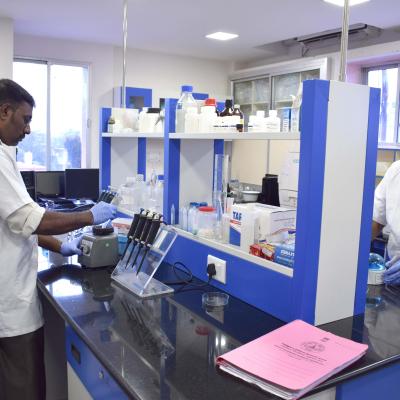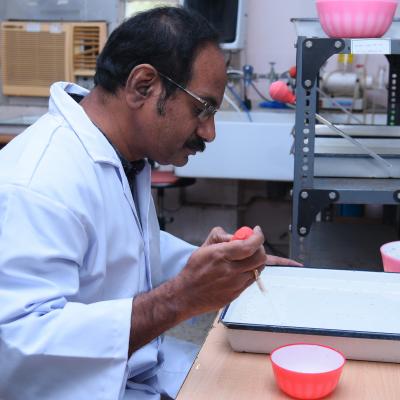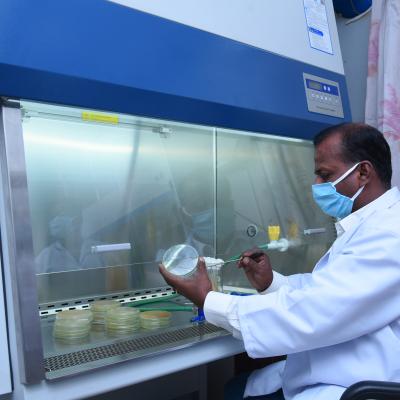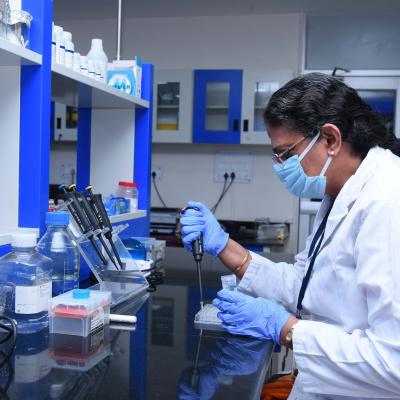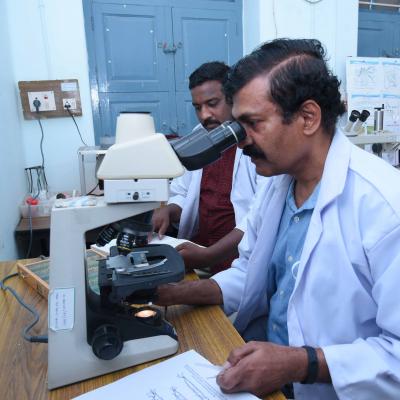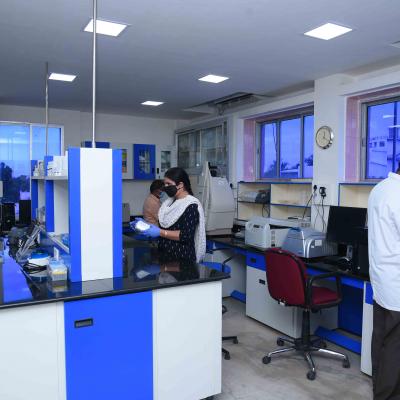| Sr. No. | Name of the staff | Designation |
|---|---|---|
| 1 | Dr. R. Paramasivan | OIC & Scientist -F |
| 2 | Dr. M. Muniyaraj | Scientist -D |
| 3 | Dr. P. Philip Samuel | Scientist - C |
| 4 | Dr. (Smt). Bhavna Gupta | Scientist - C |
| 5 | Dr. V. Thenmozhi | Principal Technical Officer |
| 6 | Dr. M. Palaniyandi | Technical Officer-C |
| 7 | Mr. A. Veerapathiran | Technical Officer-C |
| 8 | Mr. V. Rajamannar | Technical Officer-B |
| 9 | Mr. N. Krishnamoorthy | Technical Officer-B |
| 10 | Mr. M. Kalimuthu | Technical Officer-A |
| 11 | Mr. A. Selvam | Technical Officer-A |
| 12 | Mr. R. Govindarajan | Technical Assistant |
| 13 | Mr. K. Venkatasubramani | Technical Assistant |
| 14 | Mr. T. Balaji | Technical Assistant |
| 15 | Dr. A. Venkatesh | Technician (2) |
| 16 | Dr. S. Victor Jerald Leo | Technician (1) |
| 17 | Mr. A. Abdul Rahibdeen | Laboratory Assistant-1 |
| 18 | Mr. K. Andi | Laboratory Assistant-1 |
| 19 | Mr. S. Mathuraiveerani | Laboratory Assistant-1 |
| 20 | Mr. C. Ponnusamy | Assistant |
| 21 | Mr. M. Abbas | Staff Car Driver (Group II (5)) |



